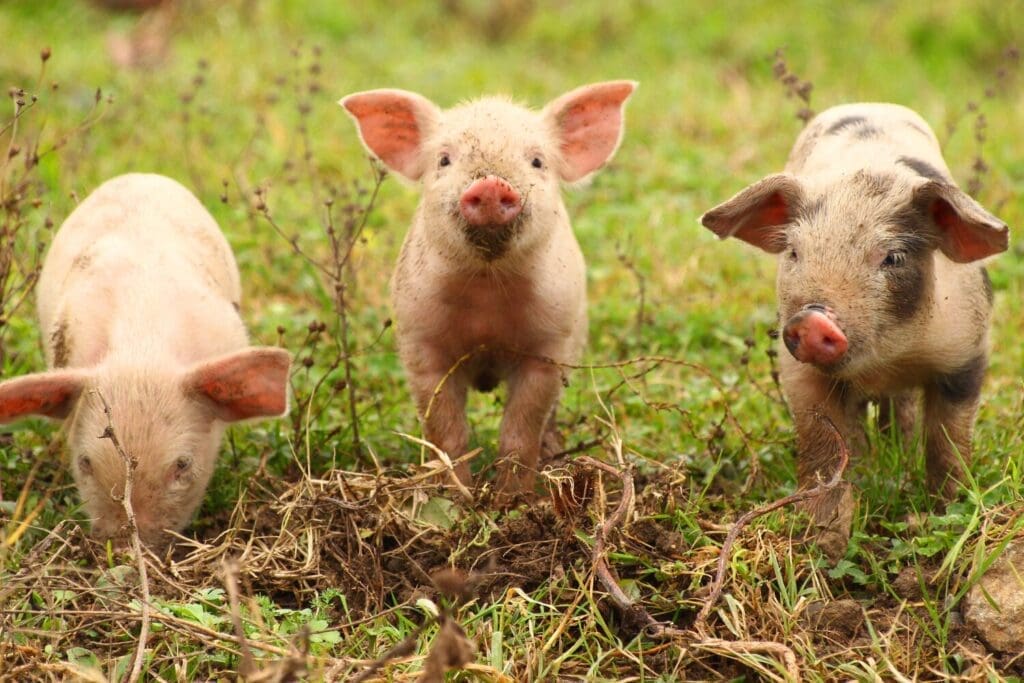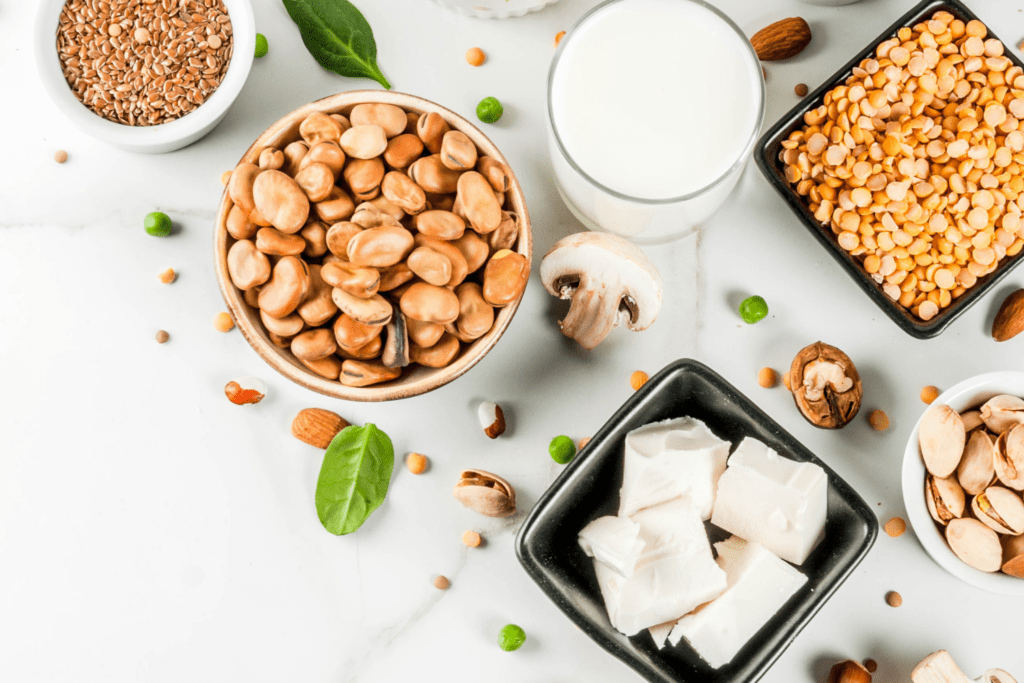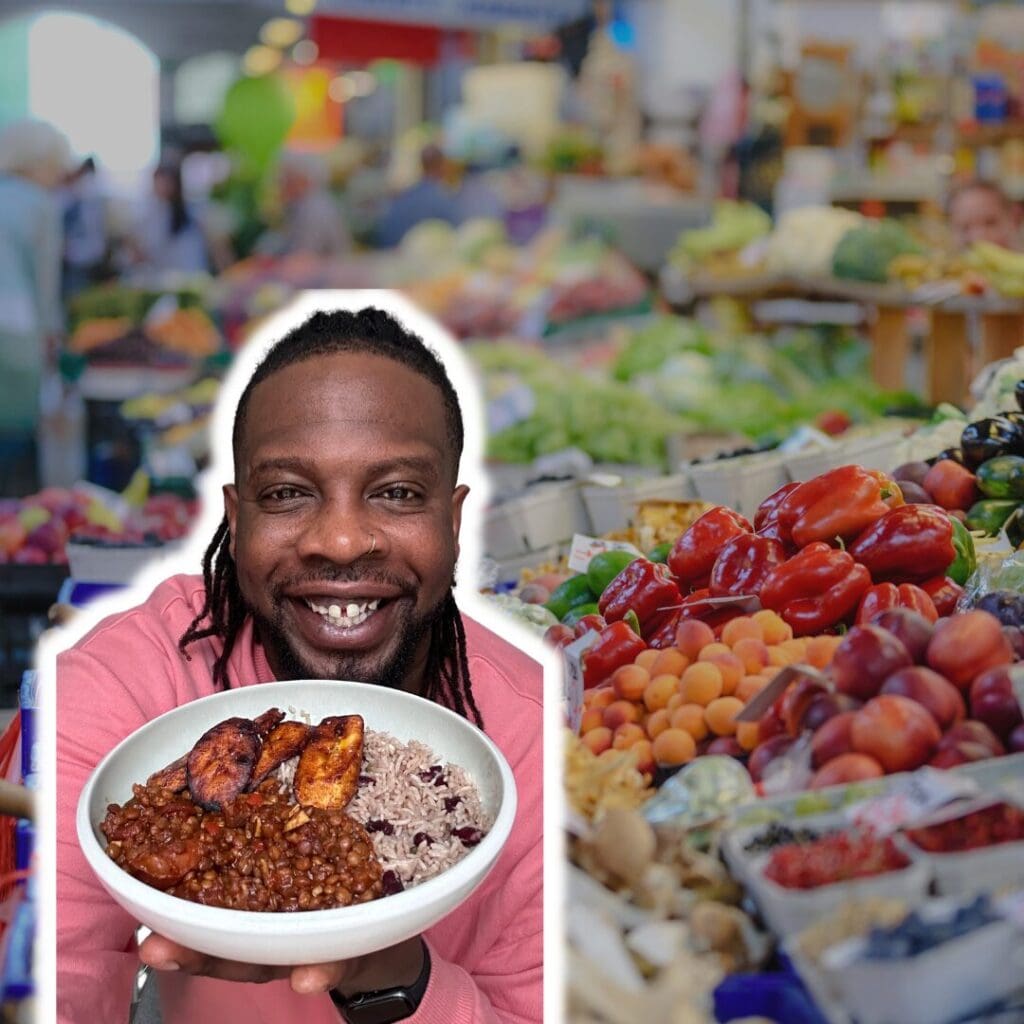Beginner’s guide to plant-based eating
Featured Author: Emma Levez Larocque, Plant-Based R.H.N
Have you been hearing about plant-based diets and wondering what all the fuss is about?
In this video we’re going to explore the topic of plant-based eating—what does the term actually mean? Is this way of eating truly healthy and sustainable? And why are some people shifting their diets to eat more plant-based foods?
If you decide a plant-based shift is something you’d like to try out as you watch this video, the second half of this video shares some great tips on easy ways to get started! You can also download the beginner’s guide to plant-based eating:
What is plant-based?
Before we dive in, let’s define our terms. It may seem obvious, but “plant-based” refers to foods that come from plants—like fruits, vegetables, whole grains, nuts, seeds and legumes, and does not include animal-based foods like meat, dairy, and eggs.
Popularity of plant-based
Have you noticed that there are more plant-based products at your local grocery store than there used to be? According to a 2021 report by Bloomberg Intelligence the interest in plant-based foods is increasing. Their research projects that plant-based products will make up to 7.7% of the global protein market—a value of over $162 billion—by 2030!
Why plant-based?
What’s causing this shift? Why are plant-based foods becoming so popular?
For the planet
Many people have started changing what they eat because they’re concerned about the environment, but does a dietary shift really make a difference? Let’s take a look at what the data says.
Our World in Data published research about the Environmental Impacts of Food Production. They showed that one quarter of the world’s greenhouse gas emissions result from food and agriculture, and the main contributors to food’s emissions are livestock and fisheries, crop production, land use and supply chains, in that order.
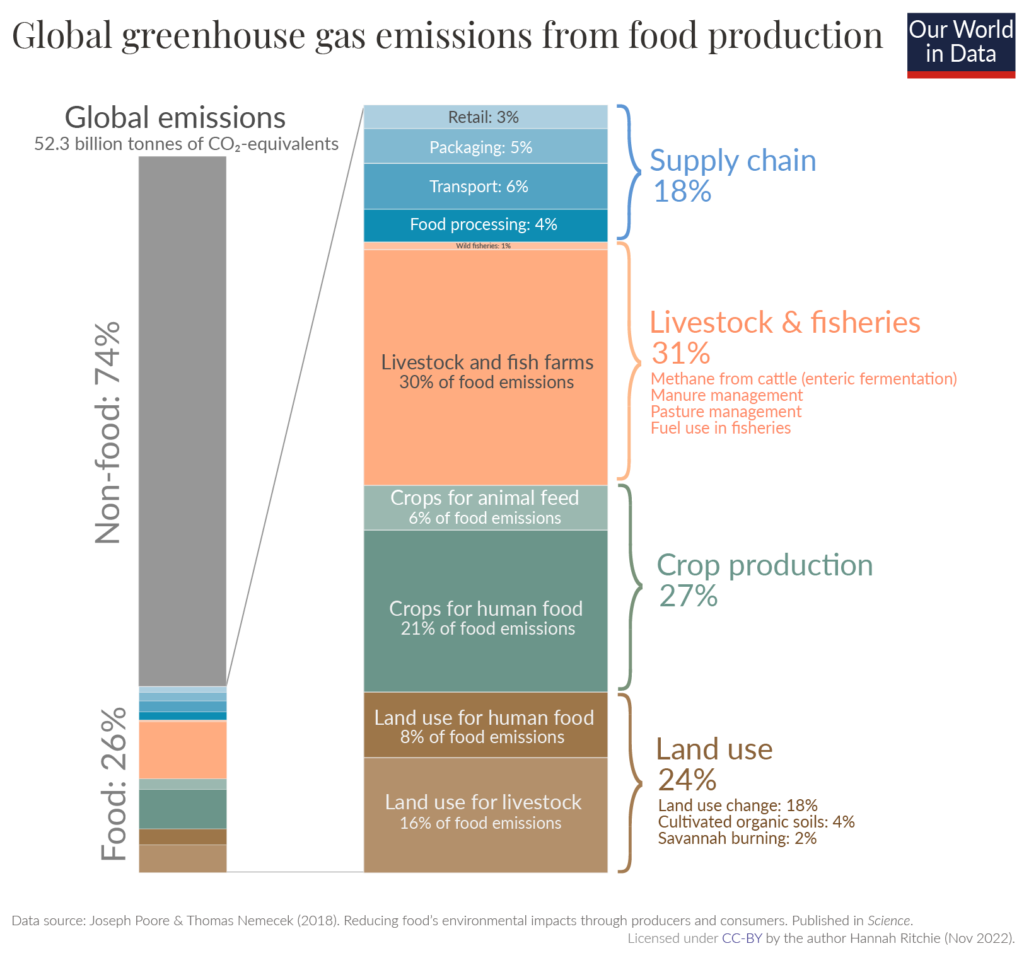
When comparing the carbon footprint of protein-rich foods, which account for the bulk of our dietary emissions, they found that the impact of plant-based foods is significantly lower than meat and dairy, across the board. Beef, lamb, farmed shrimp and cheese were the worst offenders, while plant-based protein sources, like tofu, beans, peas and nuts, had the lowest carbon footprint.
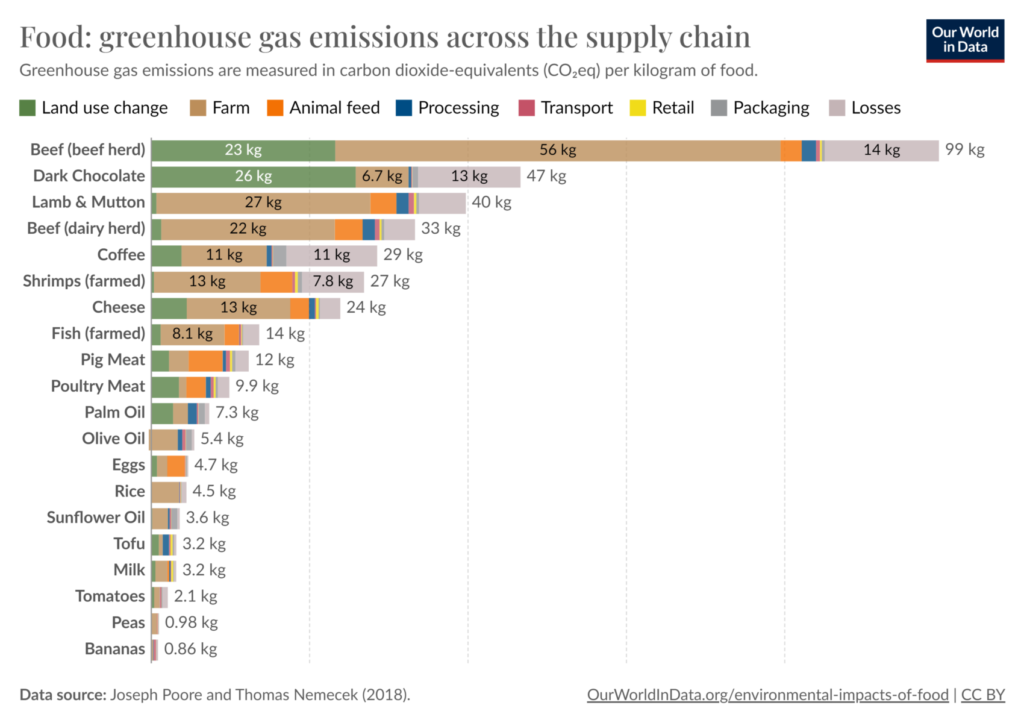
The researchers on this project concluded that:
“Tackling what we eat, and how we produce our food, plays a key role in tackling climate change, reducing water stress and pollution, restoring lands back to forests or grasslands, and protecting the world’s wildlife.”
What do you think? Would you be willing to shift your diet if it helps keep the planet healthier?
For our health
But there are some other things to consider. Even if it’s good for the planet, is this a healthy way for humans to eat? Sometimes it can be mind-bending trying to make sense of all the information about constantly changing food trends!
So let’s take it back to the basics. One thing a majority of doctors and scientists agree on is that eating more veggies is a good idea. But is it safe to focus your diet around plant-based foods, or eat plant-based foods exclusively?
A growing number of studies are showing that a well-balanced plant-based diet is not just safe but can have significant health benefits.
According to the Physician’s Guide on Plant-Based Diets, a peer-reviewed article by Registered Dietitian Julieanna Hever, plant-based diets have been associated with lowering deaths from heart disease, supporting healthy weight management, reducing medication needs, lowering the risk for most chronic diseases and more.
And one thing we think is interesting is that this isn’t anything new! In five areas of the world now famously known as the Blue Zones you can find the longest-lived, healthiest people in the world. National Geographic and a team of researchers studying these areas found that one of the common behaviours of people living in the Blue Zones was a focus on unprocessed plant-based foods.
As plant-based diets become more popular and are being linked with health benefits, more research is being conducted. As a result, a growing body of evidence is connecting meat consumption with a higher risk of common chronic health conditions like Type 2 diabetes, heart disease and even some types of cancer.
And Health Canada has assessed this information. The new Canada Food Guide, revised in 2019, recommends that Canadians shift to eating plant foods – including plant proteins – more often.
For the animals
Another consideration as you are thinking about the pros and cons of a plant-based diet is the animals.
According to government-recorded statistics more than 825 million animals were raised and killed for food in Canada in 2021. We know that farmed animals like pigs, cows and chickens are as intelligent and sentient as the cats and dogs we share our homes with, but our society treats them very differently. Most farmed animals are raised in factory farms in cramped, poor conditions none of us would wish on our pets – so why do we look the other way when it comes to farmed animals?
We’d love to hear what you think about all of this. If you’re considering shifting to a plant-based diet, what is your main motivation? Or maybe you have more questions? Tell us in the comments below.
Learn more:
Tips for getting started
If you’re ready to start making a plant-based shift, you might be surprised at how easy it can be to get started.
1. Start small and stack up successes
First up, we recommend starting small and stacking up successes.
Moving toward a plant-based diet can be easier if it’s a gradual process. For example, you could start with one plant-based meal a day – like oatmeal loaded with berries, a veggie scramble, or avocado toast for breakfast. When you have that down, add in a second meal – like a bean burrito, a veggie soup or a great big meal salad for lunch. Then go on to dinner. This approach gives you time to try out some new foods and recipes and build the habits that lead to lasting change.

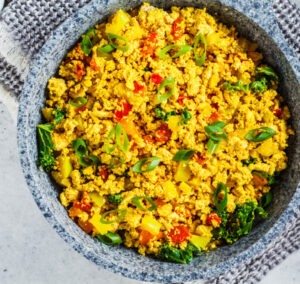


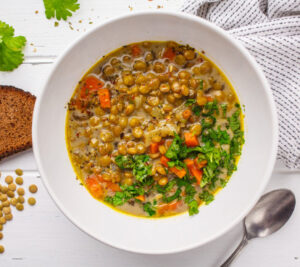
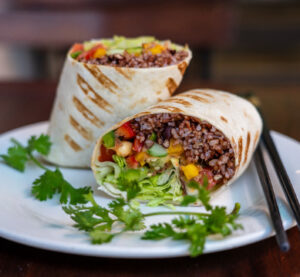
2. Take a look at what you’re eating now
Another tip as you’re getting started is to take a look at what you’re eating now. You might find that there are already plant-based foods you are enjoying. Do you like falafel and hummus? Plant-based! Chana masala? Pasta with marinara sauce? Lentil stew? All plant-based! It’s easy to find recipes and products that can help you make plant-based versions of your favourite dishes. If you sign up for Plant University’s newsletter you’ll get weekly recipe ideas automatically delivered to your inbox.
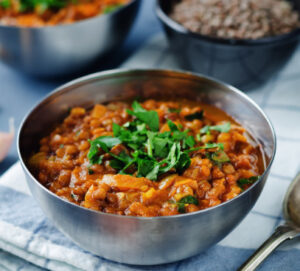



3. Take a cooking class or program
If eating more plant-based foods is a big switch for you and your family, you might consider taking a local cooking class or an online cooking program like Rouxbe. This is a good way to sample new foods and get inspired to start making beautiful and delicious plant-based dishes. Many people are surprised to find that it’s easy to get inspired by the colours and vibrancy of fresh plant foods!
4. Arm yourself with knowledge
Our final tip is about arming yourself with knowledge.
As you’re transitioning, take some time to do your research and make sure you’re providing your body with the fuel it needs to take full advantage of all the benefits of a plant-based way of eating. This will ensure that you can thrive on your plant-based journey. PlantUniversity.ca is a great place to get started. The site has a great selection of resources, including recipes, videos, blog posts, a shopping and eating guide, and a 21-day challenge to help you get started in creating healthy plant-based habits.
Are you in the process of transitioning to a plant-based diet? We’d love to hear what’s working for you!
More posts like this
3 ways to get involved in Canada’s first official Veganuary
Happy New Year! Veganuary 2025 is here!
Embrace the challenge: join Veganuary 2025!
New research finds plant protein equal to animal protein for building muscle
For years, many people thought animal protein (like beef or chicken)…
Chat with Ebenezer Odeniyi, vegan advocate and online cook
I’m an online cook; here’s how I advocate for plant-based eating…
I’m a photojournalist; here’s how I advocate for animals using the power of imagery
I’m a photojournalist; here’s how I advocate for animals using the…

